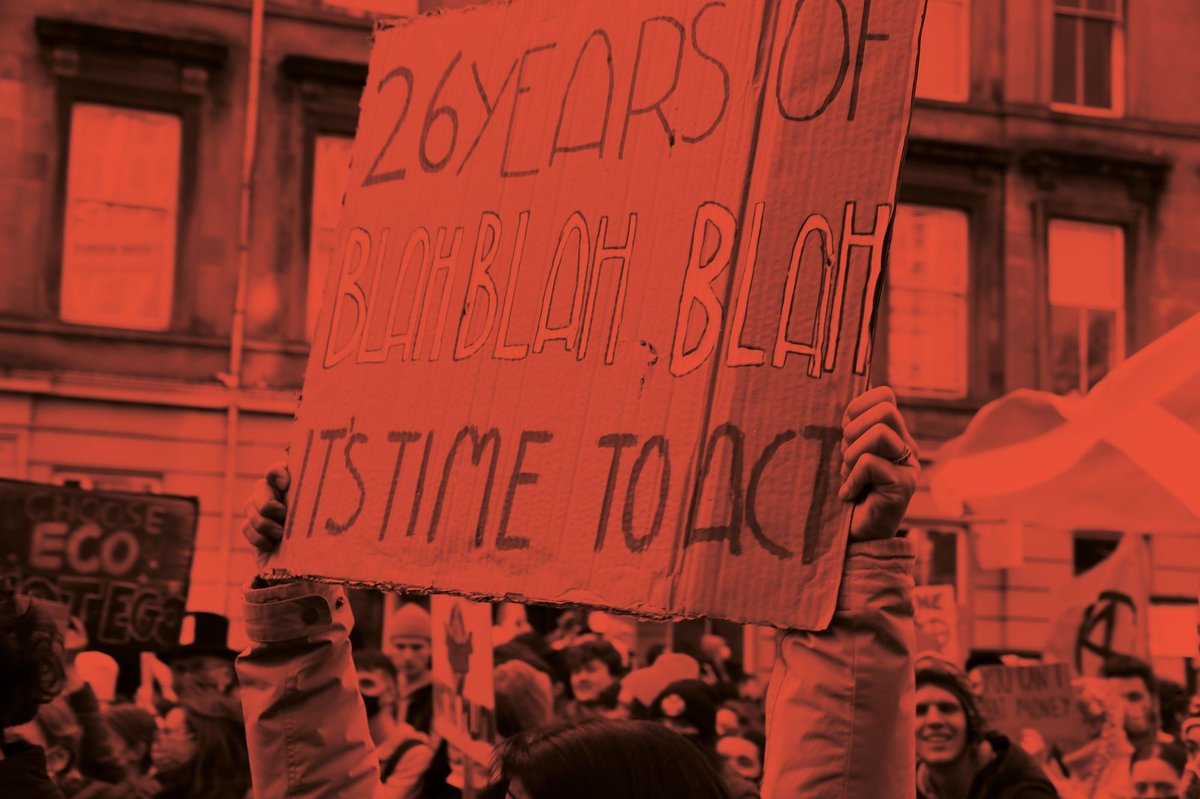Foreword from Mike Davis, Global Witness CEO
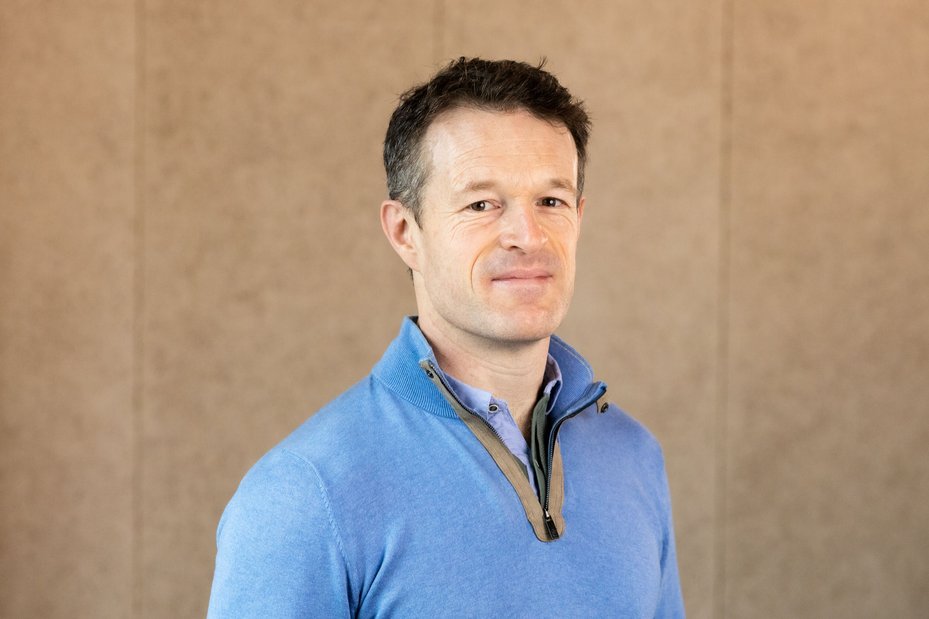
2022 began amidst a global pandemic and swiftly brought a brutal new war that made it harder for people all over the world to pay for their energy and their food. It saw threats to democracy and civic freedoms on all continents; in many cases amplified by the insidious power of social media. The planetary reckoning of climate breakdown brought terror and deprivation to people struck by extreme heatwaves, wildfires and floods.
How could we at Global Witness, an investigative campaign group that takes on the toxic forces driving the climate emergency, respond and find – amidst the turmoil – opportunities for the systemic change we all need?
We had to consider the connections between the blizzard of events, the bigger picture they both highlighted and obscured, our direction as an organisation and our capacity to balance long-term strategic focus with agility.
As a starting point, we recognised that the climate emergency is utterly one sided
Indeed, the architects of planetary meltdown are still the ones writing the story of what this crisis is and what it means for the rest of us. They have a hand on the pen when governments write new rules that promise action to address it. For the sake of all of us alive today and for future generations, this must change now.
The role of Global Witness should be to become part of a movement to shift the balance of power from polluters profiting most from the climate emergency to the people most adversely affected.
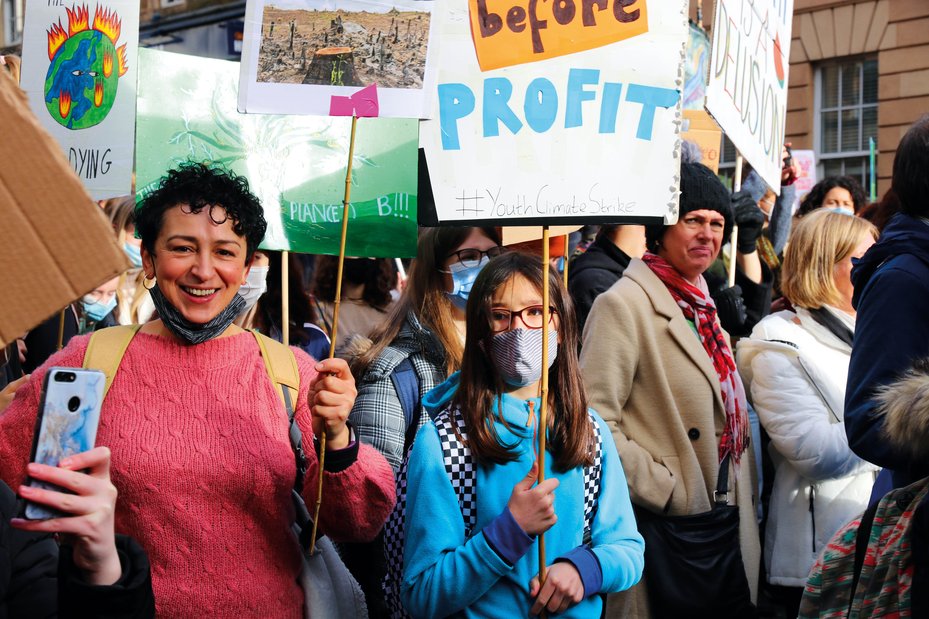
Climate strike march organised by Fridays for Future during COP26. Jasmin Qureshi / Global Witness
Influencing the climate debate
What should that look like? In 2022, we set about finding new creative pathways to influencing the climate debate; showing up in ways that bring a more human story which connects people with issues that can seem impersonal, abstract, and exclusive.
That meant refining our investigate-expose-advocate model, using pacier investigations that increasingly draw on cutting-edge, data-driven techniques. We experimented with different approaches to communicating what our investigations revealed – working harder to reach those that we need to persuade as well as those that already agree.
As we engaged with lawmakers and officials, we thought more deeply about how we brought our partners into those discussions and how our work might build a platform to elevate the voices of others.
We decided we wanted to be an organisation that others could count on to move at speed and scale to respond to new challenges and adapt with the fluidity of the shape-shifting climate debate itself.
We also recognised that, to be the best version of ourselves, we would need to be as collaborative within as without – operating as a team with one overriding objective rather than a loose federation of neighbourly, but somewhat disparate, Global Witnesses.
COP27 confronted the world with a disturbing illustration of who is in the room and who has power when decisions about our planet are made – the big polluters – and who is shut out
Looking back on 2022, our teams stepped forward, took calculated risks, learned from what worked and what didn’t, and generated energy and innovation across Global Witness in the process.
Putin's blood oil
Events played their part too. Ten days after Russia began its full-scale assault on Ukraine, I got a call from someone who introduced themselves as part of a network of Ukrainians developing responses to the invasion.
“We’ve seen Global Witness’s work on blood diamonds. We want you to investigate Putin’s blood oil.”
The caller highlighted how, when Putin was planning his war, he was clear on who would pay for it. The funders would be international consumers of fossil fuels, notably Europeans whose governments had spent decades cultivating an addiction to Russian oil and gas as part of a colossally ill-conceived geopolitical gambit.
Was this the biggest resource-fuelled war in history, or a shattering of Europe’s assumptions about its energy supply, with huge implications for the climate emergency?
Assuming it might well be both, we immediately set up a team of half a dozen investigators, campaigners, and communications specialists. We developed a rapid stream of investigative stories that might help people understand how the world’s dependency on oil and gas was driving horrendous human rights abuses in a war with the potential to go nuclear, while hastening the destruction of our planet.
You can read, in the pages that follow, how our team set about shaping the behaviour of the oil and gas majors and traders financing and profiting from Putin’s crimes.

As Europe's energy poverty crisis escalated, Marco Grechi, a renter in Rome, spoke to Global Witness about his concerns about energy bills going up by thousands of Euros. Elena Horn / Global Witness
Energy crises
As the summer was closing, energy prices leaping and inflation ballooning, it dawned on us that the world’s biggest polluters – oil and gas firms cooking the planet with their products and funding the devastation of Ukraine – were about to take centre stage in a third, related, global crisis.
The war in which these firms are so heavily implicated was pushing the already rising energy costs to unaffordable levels, leaving people having to choose between heating and eating.
Borrowing from our Ukraine Project experience, we quickly reorganised ourselves to create another new team, a Fossil Fuels Newsroom, to start telling the story of how oil and gas majors – pillars of the political, as well as economic establishments of the UK and parts of Europe – are making themselves richer at everyone else’s expense and driving poverty and injustice.
The team swiftly made its mark on the public debate in the UK – as well as internationally – through its exposure, with partners, of a record number of fossil fuel lobbyists at COP27 in Egypt.
Climate activists
COP27 confronted the world with a disturbing illustration of who is in the room and who has power when decisions about our planet are made – the big polluters – and who is shut out: Indigenous communities and others defending the environment and those worst affected by climate emergency.
Our Land and Environmental Defenders campaign – formed following the killing of a former Global Witness staff member a decade before – is dedicated to helping advance the agendas of those on the frontlines of planetary protection, whose rights are trampled on and voices shut down.
Thanks to their work with a global network of partners, there are signs that the message is getting through. At the climate summit in Sharm El-Sheikh, the UN Secretary General and Norwegian Prime Minister both used their speeches to underscore the role, and the sacrifices, of defenders.
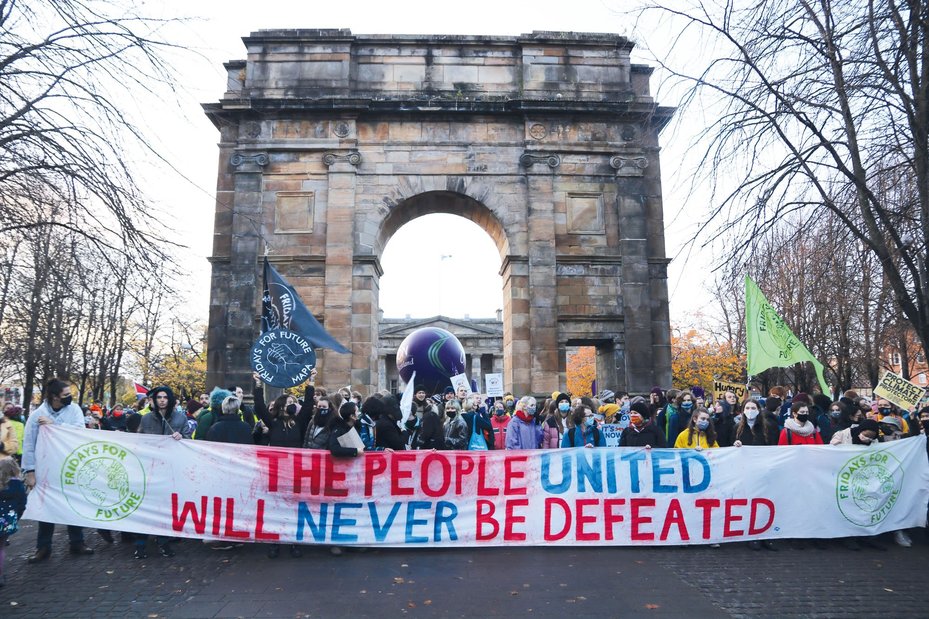
A climate justice rally and march organised by the COP26 Coalition took place in Glasgow, UK, on 6 November 2021. This was part of the Global March for Climate Justice, with actions happening across the world. Jasmin Qureshi / Global Witness
Corporate accountability
Meanwhile, the work of our Corporate Accountability Team, within a coalition of civil society organisations, to persuade the EU to introduce rules that would hold companies accountable for environmental harms and human rights abuses, finally bore fruit after years of tireless advocacy.
In February 2022, the European Commission released a proposal for a law that could give greater protections to land and environmental defenders and other communities harmed by global supply chains.
A key Global Witness priority for 2023 is to reinforce this work and maximise the chances of a strong corporate accountability law emerging by the end of the year.
Forests
Global Witness’s campaign to take the finance out of deforestation also scored a breakthrough in Europe in 2022, with the passing of a new law designed to address the EU’s global deforestation footprint.
Our Forests Team supported and added to our partners’ work by providing investigations-based evidence needed to remedy flaws in the draft law that would have exempted imports of rubber, for example, while also leading work to build the long-term case for the new regulation to cover financiers too.
In 2023, the Forests Team will be developing a new stream of work that borrows from the nimble investigations and story-telling approaches of our Ukraine Project and Fossil Fuels Newsroom to place greater scrutiny on the role of another category of powerful global polluters: the international banks and asset managers profiting from the demolition of the world’s forests.
Also coming up in 2023 will be the exciting relaunch of Global Witness’s Natural Resource Governance (NRG) campaign. In 2022, the NRG Team completed the design of an ambitious new strategy – developed with a network of activists in the Democratic Republic of the Congo, Madagascar, Zambia and Zimbabwe – to build the case for fairness in the global green transition.
The focus will be the rush for the transition minerals needed to make everything from electric vehicles to solar panels and ensuring that communities in Global South countries receive a fair share of the full range of technological, as well as financial benefits.
In 2022, the team tested out its new approach with a visually compelling and internationally influential exposé of the impacts of heavy rare earth mining in conflict-affected northern Myanmar that drew on satellite imagery analysis as well as undercover fieldwork.
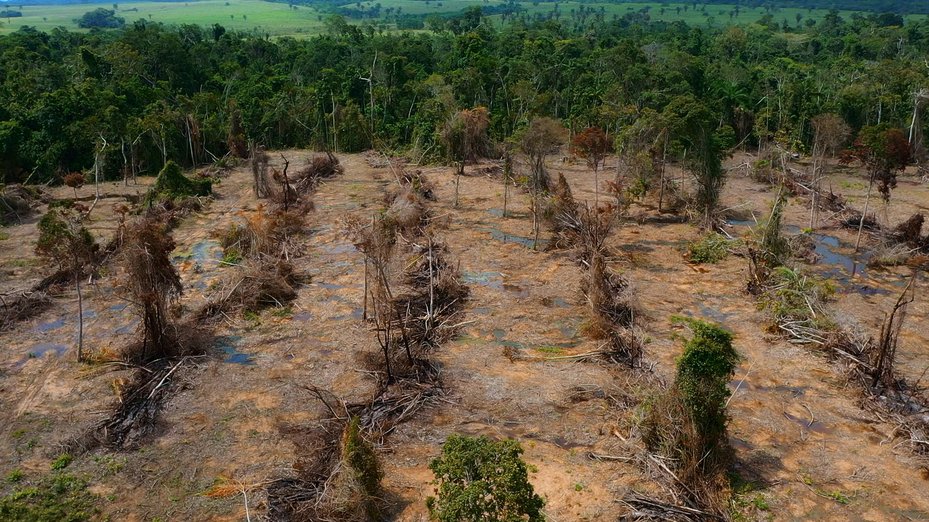
Forests, land and vast areas of the climate-critical Amazon are being deforested at an alarming rate.Global Witness
Big Tech
Adding to our efforts to empower those shut out of public debates and decision-making, our Digital Threats to Democracy Team embarked on a rapid sequence of investigations in 2022 to test out social media companies’ will and capacity to prevent disinformation and hate speech.
Highlighting instances where platforms such as Facebook were willing to publish incitement to ethnic violence – such as in Ethiopia – through to Big Tech’s complicity in undermining climate-critical elections in countries such as Brazil and the US, our team has progressively built up the case for a fundamental change in social media firms’ business model.
Standing back from the adjustments we began to make to our campaigning approach in 2022, we started to consider what else about Global Witness we might need to update and evolve to reach our full potential. We began work on an organisational strategy that sets out pathways for where we want to get to by 2030.
This strategy covers campaigns but also five other areas too. These include how we show up in the world – the way we work with partners, as well as our public profile – and how we develop our people and establish ourselves as a go-to employer for inclusion and belonging.
We want to improve our effectiveness through stronger systems and structures that befit a genuinely global organisation. We want growth that enables us to be financially sustainable and innovation that is founded on a supple and collaborative approach to responding to new opportunities and getting the best out of each other.
In 2023, we will add to this thinking based on what we have learned from our experiences in 2022.
We look forward to working with you to build a Global Witness that is ever more adaptive, resilient, and set up to thrive in an era of global crises. Thank you for your support!
Rising to the challenge of a world in crisis
Dismantling the power of the big polluting fossil fuel industry
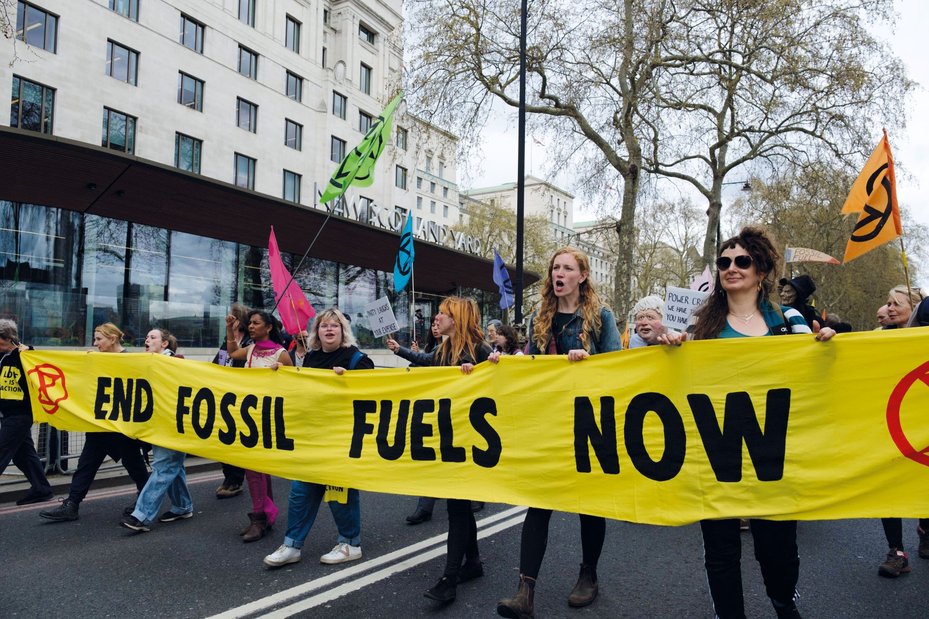
In 2022, a long wave of protests happened to demand an immediate stop to all new fossil fuel infrastructure by the British government amid the climate crisis and ecological emergency. Dan Pearson / Alamy Live News
The trio of crises – climate, energy, and Ukraine – all have one thing in common: they are driven and fed by fossil fuels.
And yet despite the science being unequivocal in its condemnation of fossil fuels – the UN Secretary General calling the fossil fuel industry “the polluted heart of the climate crisis” – the transition to renewable energy has been slow and fossil fuel companies remain powerful.
The two are not unconnected, as it is this power yielded by the industry that enables them to push back against climate action that would challenge their profits. Two new campaigns in 2022 from Global Witness put the fossil fuel industry under the scrutiny it deserves.
The Ukraine project
When Russia invaded Ukraine in February 2022, the big oil companies who spent decades building up the Kremlin’s fossil fuel exports were quick to condemn the aggression. Over the next few weeks, the fossil fuel industry announced that its business as usual in Russia was over.
TotalEnergies announced an end to new investments, commodity giants like Vitol said they would phase out Russian oil, and BP, Shell and Exxon promised to exit their enormous investments in the country altogether.
Yet as Global Witness investigations revealed, many companies were saying one thing, and doing another. The gap between their words and their actions has contributed to the Kremlin’s ability to fund the war in Ukraine.
Two months into the war we demonstrated that in the calendar month following Russia’s invasion of Ukraine, three of the world’s largest commodity traders – Vitol, Trafigura and Glencore – transported more oil from Russian ports than they had done in the same period over at least the last three years.
After a wave of coverage, including a front-page story in the Financial Times, Vitol finally committed to an end date for its trade of Russian oil.
Since day one of Russia’s brutal invasion of Ukraine, Global Witness has stood alongside the people of Ukraine to demand an end to the huge fossil fuel revenues that have lined Putin’s war chest. Our message has been clear: every drop of oil that brings in money for Putin is Ukrainian blood. Global Witness has understood this message and has worked tirelessly to expose the big oil companies that say they are with the people of Ukraine yet continue to do business with Putin
This kicked off a series of fast-paced investigations that showed the world that the fossil fuel industry was far from done with Russia.
At the end of 2022, nearly 10 months after BP promised to sell its stake in Rosneft, Putin’s oil company, Global Witness published analysis showing that the British company is owed £580m this year in dividends from its Russian venture, effectively blood money made as a result of the war.
The story caused outrage among MPs, and former Labour Minister Margaret Hodge tabled a motion condemning BP and secured an urgent question in parliament, where a cross-party group of MPs grilled a Treasury minister and pushed for the government to take action.
Working with Oleg Ustenko, President Zelenskyy’s Chief Economic Adviser, we called out BP and Shell for their hypocrisy as they continued purchases of fuels blended with Russian origin products.
The Telegraph covered the call and following press coverage coordinated by Global Witness, BP and Shell both announced a reversal of their policy on blending, meaning they stopped purchasing fuel blended with Russian-origin products.
Russia will never again be a reliable supplier of energy. Oil and gas companies have sought to exploit the war to drag us all backwards, and this has demonstrated the clear link between fossil fuels and violence.
The war in Ukraine is a moment when the climate movement must respond, holding up a mirror to a thoroughly broken and abusive global energy system.
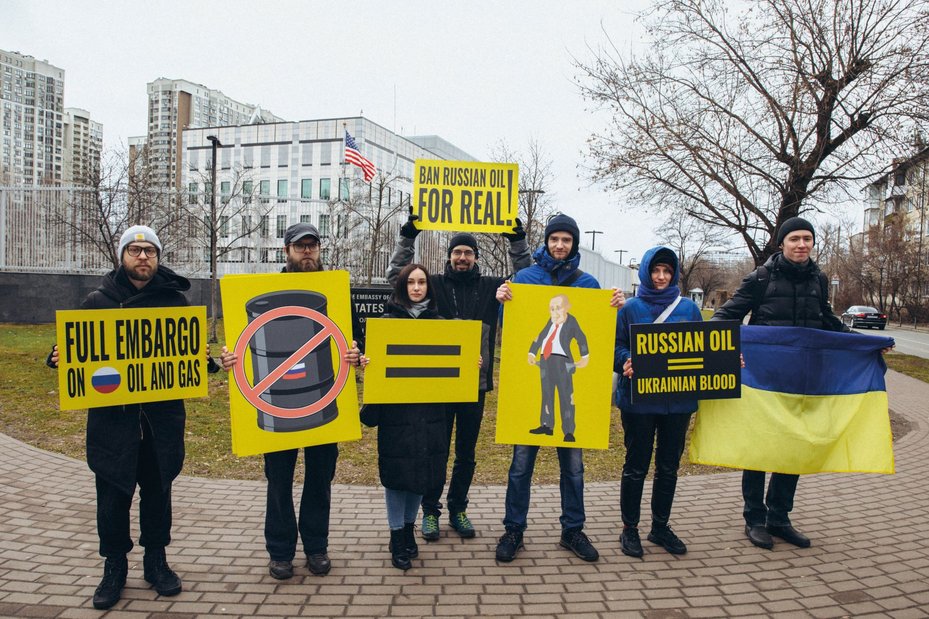
Ukrainian activists hold a banner calling for a complete ban on the trade of Russian at the US Embassy in Kyiv, February 2023. Anna Soshnikova
Spotlight: TotalEnergies and Russian gas
In August, we published an investigation into TotalEnergies’ Siberian gas production at Termokarstovoye, which Total maintained after the invasion on the grounds that it was required for European energy security.
Our investigation, co-published with Le Monde, revealed links between that production and Russian military attacks on Ukrainian civilians, which Total later denied.
Following a wave of media coverage, French politicians and a government minister called for official inquiries, and Total updated their response once and a second time in the space of two days as pressure mounted. On August 26, Total finally announced it was selling the Termokarstovoye field and its 49% stake in the associated company, TerNefteGaz.
As a result, French MPs tabled an amendment which would have taxed TotalEnergies’ Russian profits at 100% and committed them to the reconstruction of Ukraine, a proposal which narrowly failed by 8 votes.
A coalition of NGOs subsequently filed a criminal complaint against Total for alleged complicity in war crimes based on that investigation, with the National Anti-Terrorism Prosecutor’s Office in Paris.
Fossil Fuels Newsroom
As summer was drawing to a close, attention in Europe was turning to the prospect of a winter with skyrocketing energy bills that would plunge millions into poverty. The choice between heating and eating became a very real question.
Yet the picture was far from bleak for big oil and gas companies like BP and Shell, who were raking in record profits throughout the course of 2022.
This prompted us to establish our Fossil Fuels Newsroom – a team geared to exposing the absurdity of a global energy system that benefits a small but powerful clique of oil companies, whilst keeping the rest of us dependent on oil and gas, even when their costs had become so unaffordable.
In October when British-based energy giant Shell announced its quarter 3 profits, we showed how their windfall profits in the previous 12 months could pay for the energy bills of 12.5 million British households, heat pumps for 2.1 million homes, or emergency shelter for all of the victims of Pakistan’s climate crisis-caused floods.
Building into 2023, the Newsroom continued to focus on the huge profits made by the likes of BP, Shell, TotalEnergies, Chevron and Exxon, using creative and public-facing campaigns to deliver a clear message that it is fossil fuels that have caused this energy crisis, and only moving to renewable energy can deliver us the real energy security people everywhere require for their daily lives.
Spotlight: Fossil fuel industry again infiltrating COP27
Following on from our work with Corporate Europe Observatory and Corporate Accountability at COP26, we once again set out to put a number on the fossil fuel lobbyists attending the world’s most important climate talks. It showed:
- Over 100 more fossil fuel lobbyists than any single national delegation, besides the UAE who registered 1,070 delegates, compared to 176 at the previous COP
- 25% 636 fossil fuel lobbyists registered at COP27, an increase of over 25% from COP26
- There are more fossil fuel lobbyists registered than representatives of the ten countries most impacted by climate change
- Despite being the “African COP” there were more fossil fuel lobbyists registered than any national delegation from the African continent
These numbers underlined the extent to which these crucial climate talks are infiltrated by the industry that is overwhelmingly responsible for the climate crisis. The story made a huge splash, launching with the BBC and hundreds of subsequent media stories.
A number of follow-up stories emerged from the research, including the absurd revelation that Bernard Looney, CEO of BP, attended COP as an official delegate of the African state of Mauritania.
For far too long the big polluters of the oil and gas industry have been able to operate freely without any real scrutiny over their destructive impact on the planet. The energy crisis, and the subsequent untold suffering for millions of families, lies directly at the door of this industry who have profited from our woes. It’s therefore refreshing to work with an organisation like Global Witness in confronting this industry and exposing to the public that we cannot protect both people and planet until we confront the power and influence of fossil fuels
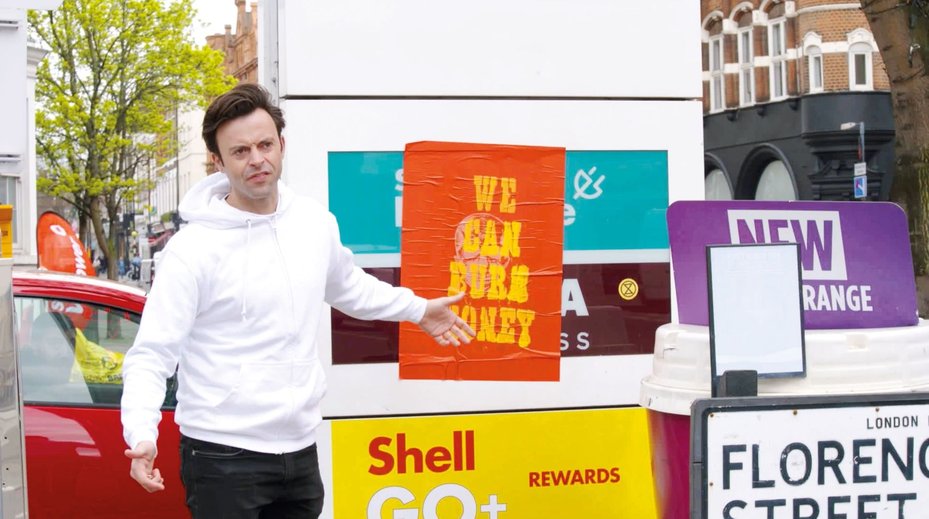
Jolyon Rubenstein (comedian and presenter) video to raise awareness of Shell's tax practices, specifically their minimal tax contributions in the UK.Global Witness
Putting people at the centre of solving the climate crisis
The fight for the planet is also a fight for the people that inhabit it. The industries that are responsible for driving the climate crisis view people at best as cheap labour, at worst hindrances, and very often as irrelevancies.
That is why dismantling polluter power must be replaced with a rise in people power. Not only because it is just and fair, not just for a more equal world, but because many of the solutions to the climate crisis lie with those who are already feeling its impacts and have been defending our planet for years.
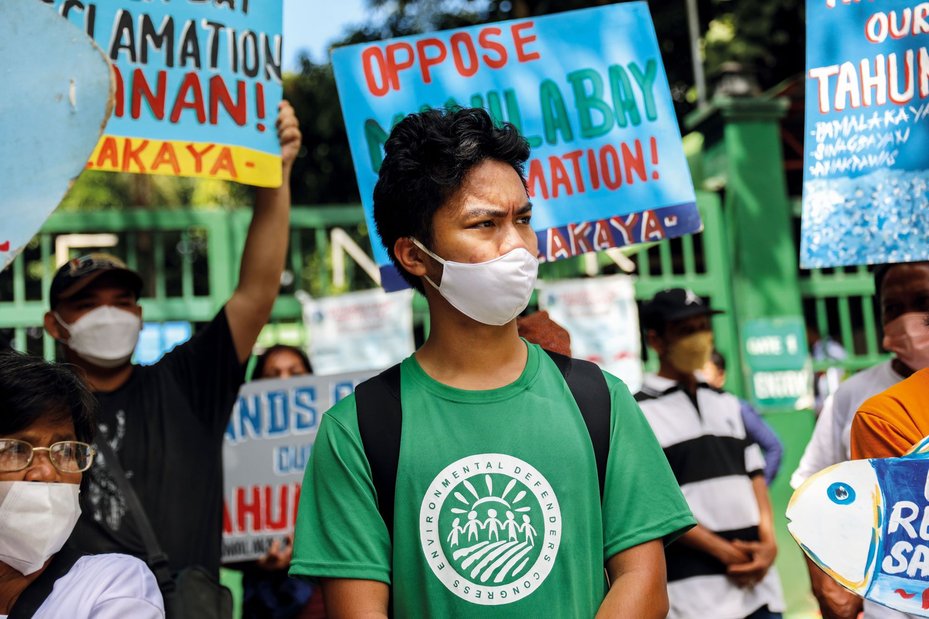
Jon Bonifacio, from the Kalikasan Peoples Network for the Environment, joins activists as they rally against the ongoing construction of a new international airport by San Miguel Corporation in Manila Bay, Philippines, in 2022. Basilio Sepe
Land and Environmental Defenders
All over the world, in 2022, we saw the courage of people to fight for their livelihoods and landscapes placing them under threat, attack, and intimidation.
In Brazil, the killings of Indigenous communities expert Bruno Pereira and journalist Dom Phillips, came against the backdrop of widespread attacks on Indigenous people during the final year of the Bolsonaro government.
But this is not just at the door of politicians and Brazilian companies. In September, we revealed how major international household names including Cargill, Hershey’s, Kellogg, Nestlé and PepsiCo were sourcing palm oil linked to violent campaigns to silence Indigenous communities, fraudulent land grabs, and intimidation and harassment in the Brazilian state of Pará.
Encouragingly, in the weeks after we released these findings, a number of those companies told us they were suspending purchases from the Brazilian palm oil producers.
And it’s not just in local communities where frontline voices are being silenced. Alongside partner NGOs and Egyptian civil society, we called out Egypt, as the COP27 host nation, over its worrying restrictions on freedom of expression and participation at the climate talks against activists, Indigenous communities and those who know the deadly impacts of the climate crisis best18.
At COP27 itself we joined forces with a number of civil society groups to underline to states just how crucial and beneficial the role of land and environmental defenders can be in spaces like COP19. It was therefore great to see the UN Secretary General echo these sentiments in his opening speech at COP27.
The Prime Minister of Norway, meanwhile, instigated an emotional moment of silence to commemorate the deaths of defenders, specifically citing our most recently published report.
Globally, one land and environmental defender was killed every two days since we started documenting killings in 2012
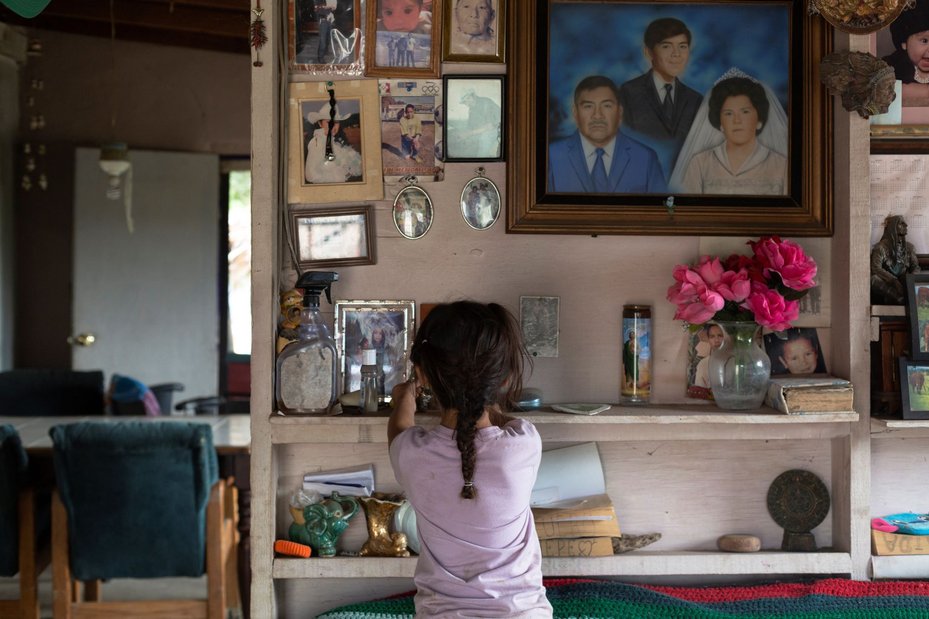
José Cuero's living room at his ranch in Juntas de Nejí
Spotlight: A decade of defiance
In September 2022, Global Witness launched its 10th annual report documenting the number of land and environmental defenders killed each year. It revealed that 1,733 people have been killed during those ten years – representing one person every two days.
The data we and our partners gathered showed that over half of the attacks over the 10-year period have taken place in Brazil, Colombia, and the Philippines. In 2021, Mexico was the country with the highest recorded number of killings. Over three-quarters of the attacks we documented in 2021 took place in Latin America.
Our research also highlighted how Indigenous communities face a disproportionate level of attacks – nearly 40% – even though they make up only 5% of the world’s population.
Just days after the report showed Colombia to be one of the most dangerous countries for defenders, its government took the promising steps of ratifying the Escazú Agreement. The Agreement is the first regional environmental and human rights treaty in Latin America and the Caribbean, and the first legally-binding instrument in the world to require governments to prevent and investigate attacks against environmental defenders.
We and our partners will be watching to ensure Colombia matches the pledge with concrete action.
Global Witness has high credibility in Colombia, and its reports have become a fundamental tool to amplify our messages. You are also very strong with international media and have access to civil society, governments, and other decision-makers at the regional level, which we can use more proactively
Spotlight: Holding corporates to account for harming people and the planet
For more than three years, Global Witness, alongside partners, has been campaigning for the introduction of a law that could force companies to act on abuse against the environment and people taking place in their supply chains.
In early 2022, the European Commission finally put forward its proposals, to which we responded with our own version of what a successful law would look like. Throughout the course of the year, we continued to work with MEPs, civil society, and others to fight for this law to be as strong as possible in finally holding corporates to account.
Whilst there were worrying moves late in the year by Member States to block key parts of the legislation **spoiler alert for 2023** as final negotiations are set to take place, the European Parliament has adopted a strong position that we hope will drive forward the legislation needed to bring about much needed corporate accountability.
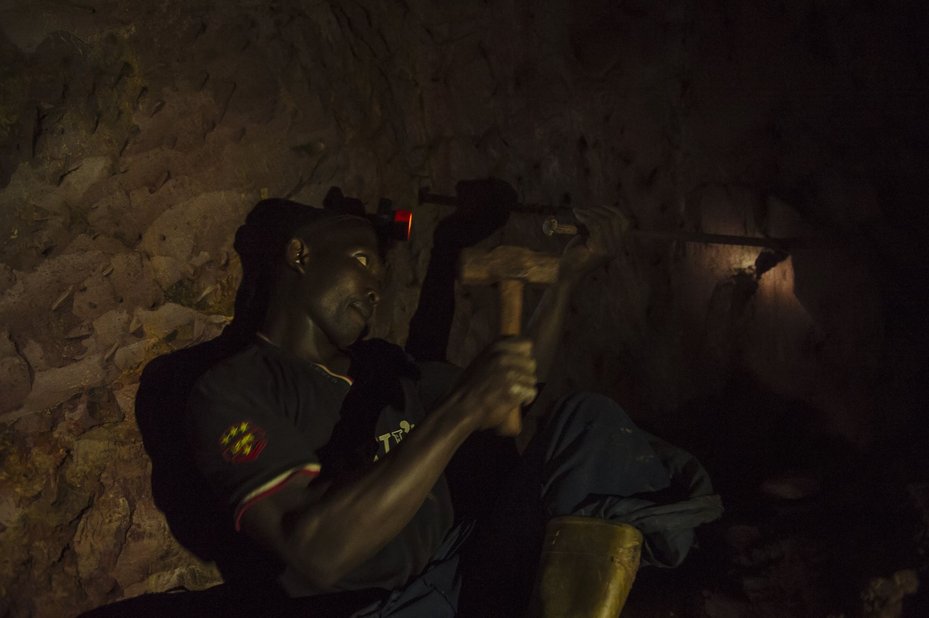
Artisanal miners dig a tunnel for a new cassiterite mine in South Kivu in the east of the Democratic Republic of the Congo. Phil Moore
Natural Resource Governance
The global drive towards a necessary energy transition has precipitated a rush to obtain the critical minerals required to power it.
This scramble for minerals such as lithium, cobalt, and “rare earth” metals that are used in everything from batteries to solar panels carries risks for communities in the Global South. And this also presents an opportunity to end the exploitative and destructive practices of mining to date and place people first.
In April, we published The ITSCI Laundromat, a major investigation into serious failures in an industry-led initiative called International Tin Supply Chain Initiative (ITSCI) that is supposed to prevent conflict-financing and human rights abuses linked with tin, tantalum, and tungsten in Democratic Republic of the Congo.
The investigation found evidence of large quantities of minerals connected to armed conflict and child labour, as well as smuggled or trafficked minerals, being laundered through ITSCI’s supply chains.
In response, the Responsible Minerals Initiative (RMI), the most widely used industry scheme for smelters of tin, tantalum, and tungsten, decided to remove ITSCI from its list of approved upstream assurance mechanisms.
The decision sends a strong signal that industry has serious concerns with ITSCI, something which we hope will lead to the scheme being reformed.
Spotlight: Myanmar's poisoned mountains
Our Poisoned Mountains report used cutting-edge analysis of satellite imagery to document a massive expansion of illegal rare earth mines in northern Myanmar. Our investigation showed how this mining boom has led to the poisoning of surrounding land and waterways, seizure of communities, and decimation of wildlife. The mining is enriching a Myanmar junta-aligned warlord whose militias threaten those that dare to speak out.
The investigation sparked debate amongst industry bodies and we briefed officials in the US State Department, UK Foreign Office and China’s Ministry of Ecology and Environment on our findings. An ethics advisory board to a major global pension fund launched a review of a Chinese manufacturer in the rare earth's supply chain.
Our research prompted multiple companies to re-examine the supply chain of their battery products and has given activist investor groups and environmental organisations new information with which to lobby companies involved in the rare earth's supply chain.
African and many other Global South countries have not benefited from the industrial revolution and more recent economic transformations. We don’t want to miss out in the energy transition too. That is why it is important to change the paradigm which considers Africa as a reservoir of raw materials that can be exploited to the detriment of the people instead of furthering their development by adding value on the ground and building sustainable supply chains. AFREWATCH welcomes its continued partnership with Global Witness to push for better regulation and hold those to account who place the rush for transition minerals above equity.
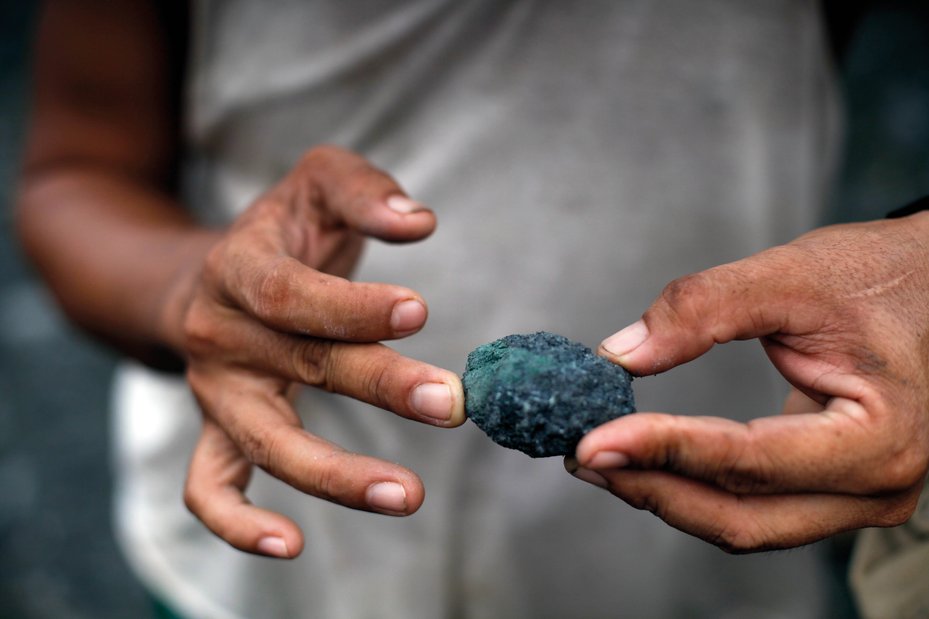
A jade miner holds a freshly mined piece of jade, in Lone Khin town, Hpakant, Myanmar. Minzayar / Global Witness
Tackling the financiers banking on deforestation
Irresponsible businesses including financial institutions are driving the destruction of climate-critical tropical forests, and the communities and biodiversity that rely on them.
We are campaigning to end the flow of money to reckless businesses – particularly damaging agribusinesses enabling this deforestation.
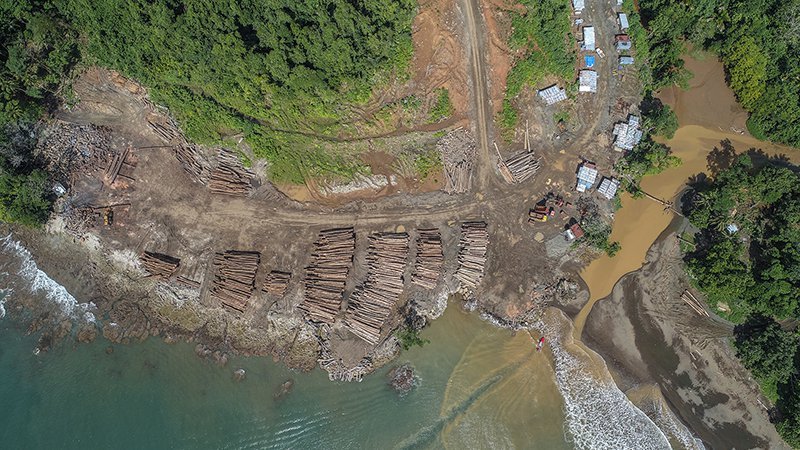
Unsustainable rates of logging and the high risk of illegal practices on the once pristine paradise of the Solomon Islands are putting China’s reputation as a global trading partner at risk
Protecting our forests
Our investigations and stories in 2022 helped expose many of the businesses that are contributing to the degradation of the world’s forests.
In June, our investigation revealed that industrial rubber plantations in West and Central Africa have been linked to an area of tropical deforestation 16 times the size of Brussels since 2000. It showed how major banks in the EU provided over €1.5bn in financing to multinationals linked to rubber-driven deforestation in the region.
And later that same month, another Global Witness investigation showed how banks and financiers in the Global North had backed Brazilian beef giant JBS to the tune of almost $1 billion, despite the company’s links to widespread deforestation, land grabbing, and slave labour in the Amazon.
As COP27 was taking place in November, we revealed that financial institutions that had joined a net-zero pledge, known as “GFANZ” at COP26, were still investing $8.5 billion in companies at risk of causing deforestation.
Our final forests investigation of 2022 attempted to take this debate one step further. What happens when a company sells off assets linked to deforestation and human rights abuses, without trying to rectify the problem?
That’s exactly what we found in the case of Brookfield Asset Management, headed up by the UN Special Envoy for Climate Action, Mark Carney.
Spotlight: EU deforestation law a huge step forward
Throughout 2022, we used the evidence from our investigations to campaign in Brussels, with an array of partners, for a strong anti-deforestation law that could offer a major step towards deforestation-free supply chains in the EU.
In December, that hard work paid off as the EU sealed an agreement on the law, to be signed in 2023 and come into effect shortly after.
Although ambitious, we had consistently argued for including the financial sector in this legislation. It was therefore encouraging that our allies in the European Parliament, using our evidence, were able to negotiate a review clause that requires the Commission to review the role of EU financiers in deforestation within the next two years.
A disappointing outcome of the negotiations was the failure to agree meaningful new protections for Indigenous Peoples. Moves to require companies to respect international human rights law did not make it into the agreement.
We will be monitoring the law’s implementation to make sure that when these rules are broken it results in dissuasive penalties that companies simply cannot factor into their costs of doing business.
We must do everything we can to stop deforestation, because we cannot survive in nature-depleted chaos. What is good for forests is good for the global economy and governments in financial centres like the City of London should prevent lenders from ploughing billions into deforesting companies. That is why I worked with Global Witness to push through vital changes to the Financial Services and Markets Act, a “once in a generation” change to financial regulation in the UK.
Global Witness’s investigations and savvy campaign [were] integral to our winning vote in the House of Lords to introduce a new due diligence law, which provides the Treasury with a blueprint for how to stop UK finance driving deforestation and illegal land grabs against Indigenous Peoples as they move forward with a new review on this topic
Fighting Big Tech's distortion of online spaces
Social media has brought people closer together and made the world smaller. Yet it remains dominated by a few powerful companies whose profit-driven business model is incentivising and monetising hatred, fear, disinformation and abuse.
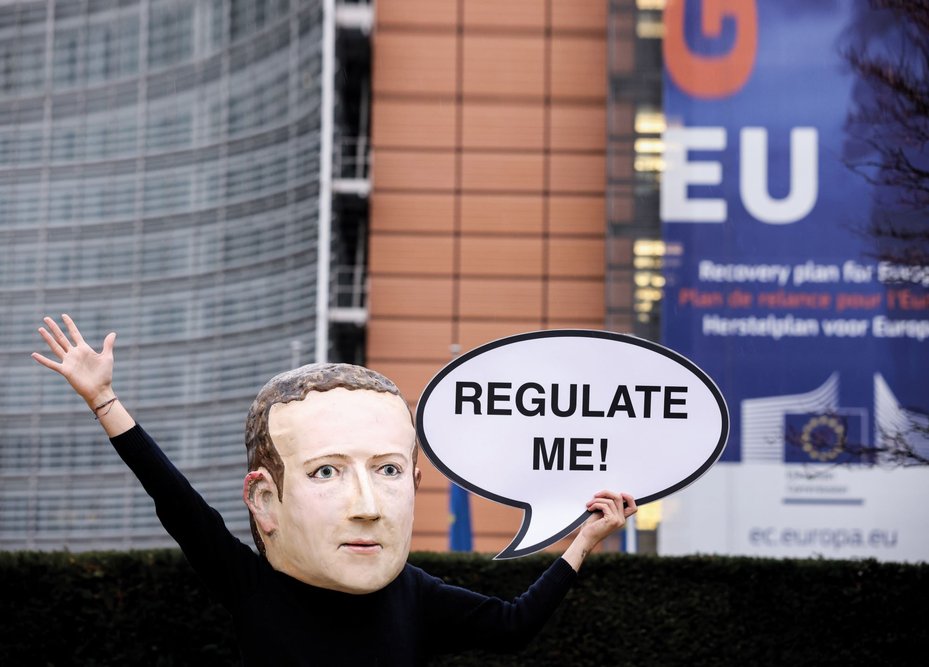
Activists during an action marking the release of the Digital Services Act, outside the European Commission building in Brussels on December 15, 2020. Kenzo Tribouillard / AFP via Getty Images
Combatting online disinformation
Our Digital Threats Team spent 2022 exposing the role of big social media platforms in sowing such hatred and disinformation that always has very real-life consequences.
In Ethiopia and Kenya, we showed how Facebook was allowing hate speech to be approved for publication on its site, marking the beginning of our series of stress-testing social media’s ability to detect and stamp out problematic content.
Ahead of, during, and after tense presidential elections in Brazil, we found Facebook, TikTok, and YouTube failing to prevent disinformation and violent hate being spread on their platforms.
Working with the Cybersecurity for Democracy Team at New York University, we also found Facebook and TikTok failing to block deceptive ads with blatant disinformation about the US midterms.
In a separate test on death threats being made against polling station workers during the midterms, TikTok and YouTube fared better, but Facebook was still failing to meet its responsibilities on stopping violent hate.
In Europe, Global Witness campaigning, within a wider coalition, contributed to the passing of the EU’s Digital Services Act (DSA); a new law that brought in the most sweeping regulation of tech companies anywhere in the world.
The DSA navigates a thorny line between protecting people’s free speech online and tackling illegal content, rights abuses, and social harms – including growing issues such as viral disinformation and electoral interference.
It finally offers a way to systematically lift the lid on the inner workings of the biggest tech companies that play an increasingly dominant role in how we experience the world.

Still from "How is disinformation fuelling the climate crisis?" video.Global Witness
Spotlight: Social media and climate disinformation
Our investigation in March 2022 revealed how Facebook can lead users down a rabbit hole of climate denial and misinformation, eventually leading to outright conspiracy theories.
We simulated the user experience of an individual liking pages such as “Net Zero Watch”, an organisation countering climate policy and linked to the UK Conservative MP Steve Baker.
We found that immediately after liking this page, the user was recommended “Climate Depot”, a US-based outlet run by Marc Morano and part of CFACT, a group that calls human-induced climate change “a myth”.
In an overwhelming majority of cases, a similar pattern continued throughout the simulation leading the user to see content that includes the myth that climate change is a hoax, that describes the UN as an “authoritarian regime” that has less credibility than “Bugs Bunny”, and accuses the “green movement” of “enslaving humanity”.
As the simulation went deeper, Facebook began to recommend other conspiracies, such as the chemtrails theory which claims that condensation left by planes contains chemical agents that control the weather.
These findings fly in the face of the commitment Facebook has said it has to promoting genuine climate science.
All too often online hate speech and disinformation spills over into violence on the streets and angry discord in our democracies, endangering lives and frustrating progress against the climate emergency. Our investigations have revealed shocking failures and large inconsistencies among big tech companies when it comes to identifying and moderating hate speech and disinformation on their sites. It seems to us that these companies prefer to protect their toxic business model than properly resource content moderation and protect the rights and safety of users
Our partners
Global Witness has a long and proud history of working in partnership – not just in our investigations and advocacy, but across the organisation. In fact, it would be difficult to provide examples of an impact we’ve had that hasn’t involved collaboration and partnerships.
From working in coalition with other NGOs in Brussels to achieve breakthroughs on deforestation legislation, to documenting killings and reprisals against land and environmental defenders in Latin America thanks to reporting and monitoring by civil society partners across the continent; From working with local CSOs on the ground in the Democratic Republic of the Congo to expose failures in mineral supply chains, to jointly analysing COP delegate lists to reveal how many fossil fuel lobbyists attend the climate conference every year, our partners make our work possible.
Indeed, our ability to achieve our vision to end climate breakdown by 2030 is reliant on working with others. Given this importance, and as part of our organisational commitment to continual learning and reflection, a key Global Witness priority for 2023 is to review how we work in partnership, so we can ensure that we are consistently demonstrating that what we say is what we actually mean and do.
Global Witness looks forward to continuing to collaborate with our partners across our campaigns and the wider organisation, learning from others’ knowledge and sharing our own expertise, as we work together to shift the balance of power from those most benefiting from the climate crisis to those most disproportionately impacted.
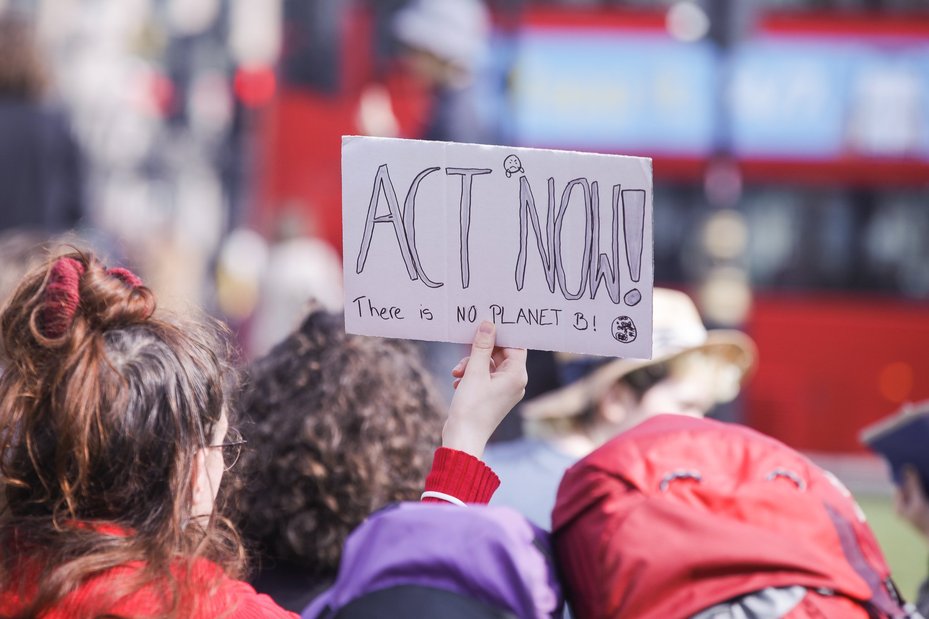
Climate activists at Fridays for Future march.Global Witness
Our supporters
Global Witness appreciates all of our donors who make our work possible.
With thanks to:
- Aber D. Unger Foundation
- Arcadia
- Arcus Foundation
- Brook Foundation
- Camille Massey
- CHARISMA Stiftung für nachhaltige Entwicklung
- Department of Foreign Affairs
- and Trade of Ireland
- Don Quixote II Foundation
- European Climate Foundation
- FCDO - Forests, Governance,
- Markets and Climate Programme
- FJC – A Foundation of Philanthropic Funds
- Flora Family Foundation
- Ford Foundation
- The Foundation to Promote Open Society
- The Frederick Mulder Foundation
- Grantham Foundation for the
- Protection of the Environment
- Hopewell Fund
- Humanity United Action
- The Isocrates Foundation
- Jane Thurnell-Read
- Jocarno Fund
- Kenneth Miller Trust
- The Kestrelman Trust
- Laudes Foundation
- Luminate
- Michael Hokenson
- The Minor Foundation for Major Challenge
- Nationale Postcode Lotterij
- Norwegian Agency for Development Cooperation
- (NORAD)
- Oliver Hudson
- Patagonia.com
- Postcode Justice Trust, supported by players of People’s Postcode Lottery
- Quadrature Climate Foundation
- Schaffner Family Foundation
- Silicon Valley Community Fund
- Skoll Foundation
- Swedish Postcode Foundation
- Taylour Foundation
- The Thomas E. Brown Charitable Fund
- Tilia Fund
- The Trellis Charitable Trust
- The Waterloo Foundation
- Wellspring Philanthropic Fund
- The William and Flora Hewlett Foundation
- WYR Foundation
This represents donors who have given their consent to have their gift acknowledged in our Annual Report.
Income and expenditure
The above summarised financial statements are extracted from the full statutory directors’ annual report and financial statements which were approved by the directors and signed on their behalf on 2 May 2023.
These summarised financial statements may not contain sufficient information to gain a complete understanding of the financial affairs of Global Witness. The full statutory directors’ report, financial statements, and auditor’s report may be obtained from https://www.globalwitness.org/en/about-us/financial-statements/
Resource Library
Download our 2022 Annual Report
Download Resource